
Negril: The Jewel of Jamaica's West Coast
Negril, a charming town on Jamaica's west coast, is known for its stunning seven-mile beach and crystal-clear waters. This paradise offers a laid-back vibe, making it a perfect escape for those seeking both relaxation and adventure. The sunsets here are legendary, painting the sky in hues of orange and pink, a sight that leaves visitors in awe every evening. Besides its beautiful beaches, Negril is rich in culture and history. Explore the local craft markets to find unique handmade souvenirs or enjoy the reggae beats that fill the air. For thrill-seekers, the cliffs of Negril provide an opportunity for cliff diving, offering both excitement and breathtaking views of the Caribbean Sea. Food enthusiasts will be delighted by Negril's culinary scene. From roadside jerk chicken stands to upscale beachfront restaurants, the flavors of Jamaican cuisine are sure to tantalize your taste buds. Fresh seafood, tropical fruits, and spicy dishes are staples here, delivering an authentic taste of the island. A visit to Negril would not be complete without experiencing its vibrant nightlife. From beach bars to nightclubs, the town comes alive after dark with music, dancing, and a lively atmosphere. Whether you are looking to relax with a cocktail in hand or dance the night away, Negril has something for everyone.
Local tips in Negril
- Visit the Seven Mile Beach early in the morning for a peaceful and less crowded experience.
- Pack light and breathable clothing; the weather is warm and humid year-round.
- Don't miss the sunset at Rick's Cafe, a popular spot for both locals and tourists.
- Try local dishes like jerk chicken, ackee and saltfish for an authentic Jamaican culinary experience.
- Carry cash as some local markets and smaller establishments may not accept credit cards.
Negril: The Jewel of Jamaica's West Coast
Negril, a charming town on Jamaica's west coast, is known for its stunning seven-mile beach and crystal-clear waters. This paradise offers a laid-back vibe, making it a perfect escape for those seeking both relaxation and adventure. The sunsets here are legendary, painting the sky in hues of orange and pink, a sight that leaves visitors in awe every evening. Besides its beautiful beaches, Negril is rich in culture and history. Explore the local craft markets to find unique handmade souvenirs or enjoy the reggae beats that fill the air. For thrill-seekers, the cliffs of Negril provide an opportunity for cliff diving, offering both excitement and breathtaking views of the Caribbean Sea. Food enthusiasts will be delighted by Negril's culinary scene. From roadside jerk chicken stands to upscale beachfront restaurants, the flavors of Jamaican cuisine are sure to tantalize your taste buds. Fresh seafood, tropical fruits, and spicy dishes are staples here, delivering an authentic taste of the island. A visit to Negril would not be complete without experiencing its vibrant nightlife. From beach bars to nightclubs, the town comes alive after dark with music, dancing, and a lively atmosphere. Whether you are looking to relax with a cocktail in hand or dance the night away, Negril has something for everyone.
When is the best time to go to Negril?
Iconic landmarks you can’t miss
Margaritaville Negril
Experience the ultimate beachfront fun at Margaritaville Negril: sun, sea, music, and unforgettable island vibes on Seven Mile Beach!
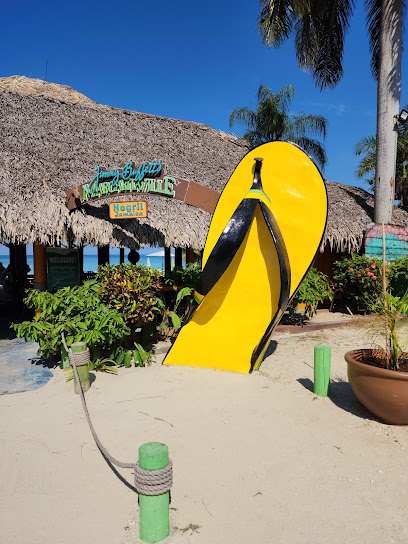
Kool Runnings Waterpark
Experience thrilling water slides, a lazy river, and family-friendly fun at Kool Runnings Waterpark, Negril's top Caribbean water attraction.
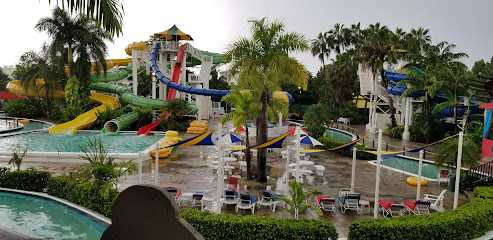
Negril Seven Mile Beach
Discover Negril's Seven Mile Beach: Pristine sands, turquoise waters, vibrant culture, and unforgettable sunsets await in this Jamaican paradise.
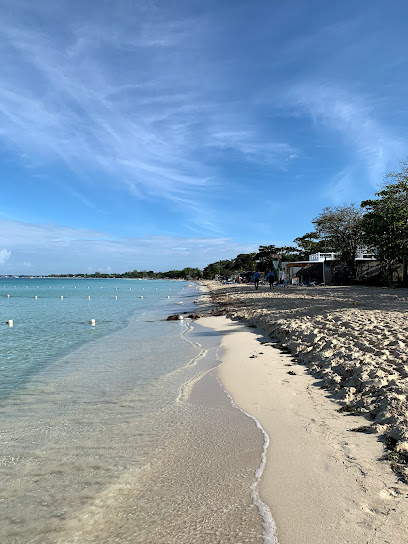
Blue Hole Mineral Spring | Jamaica
Experience the breathtaking beauty and rejuvenating waters of the Blue Hole Mineral Spring, a true Jamaican paradise for relaxation and adventure.
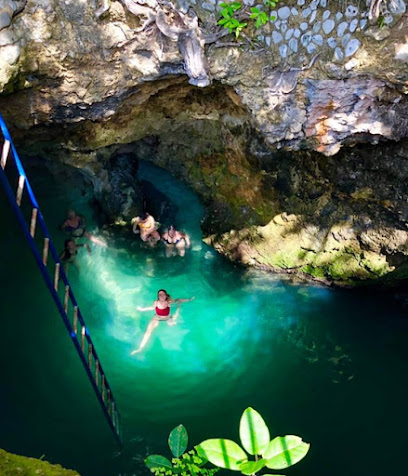
Alfred's Negril (Alfred's Ocean Palace)
Experience the best of Negril at Alfred's: beachfront dining, live reggae, and unforgettable Jamaican vibes on Seven Mile Beach.
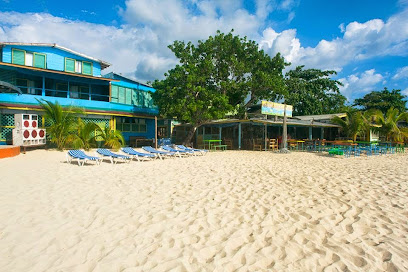
Time Square Shopping Mall
Discover a variety of Jamaican souvenirs, duty-free items, and local crafts in a relaxed and secure shopping environment on Negril's main road.
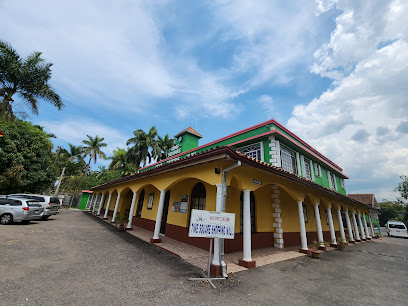
Patsy's Coffeeshop
Indulge in premium Jamaican coffee and delightful desserts at Patsy's Coffeeshop, Negril's West End gem with stunning sunset views.
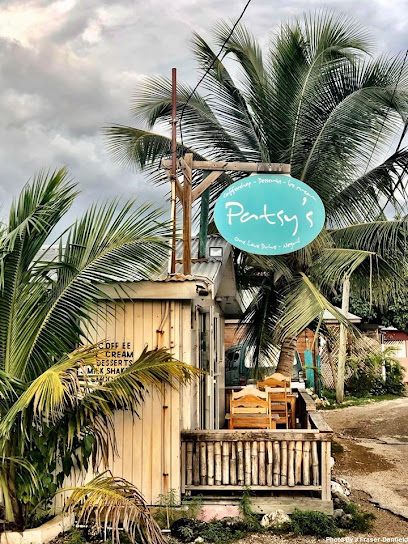
Negril Hills Golf Club
Escape to Negril Hills Golf Club for a challenging round amidst Jamaica's stunning scenery. A memorable golfing experience awaits!
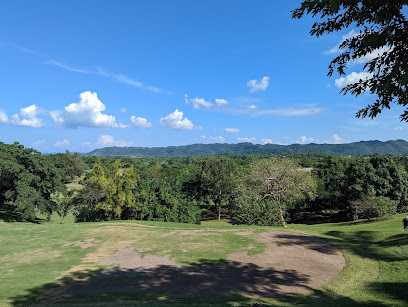
Barney's Flower & Hummingbird Garden Jamaica
Discover a tropical paradise in Negril, Jamaica, where vibrant flowers and enchanting hummingbirds create an unforgettable natural spectacle.
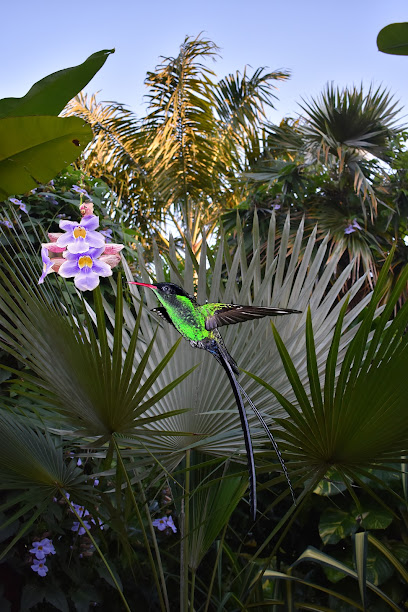
Canoe Beach Bar
Experience Negril's charm at Canoe Beach Bar: fresh seafood, potent rum punch, and unforgettable sunsets on the West End.
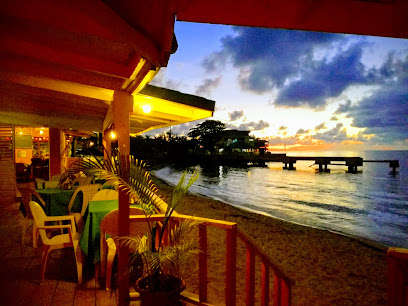
Hammond's Bakery
Experience authentic Jamaican flavors at Hammond's Bakery in Negril, home to the island's best patties and a variety of tasty treats.
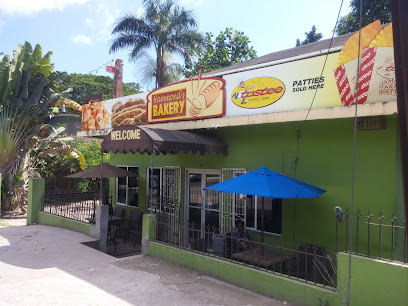
3 Dives Restaurant
Experience authentic Jamaican cuisine and breathtaking sunset views at 3 Dives Restaurant, Negril's clifftop gem. A true taste of the island.
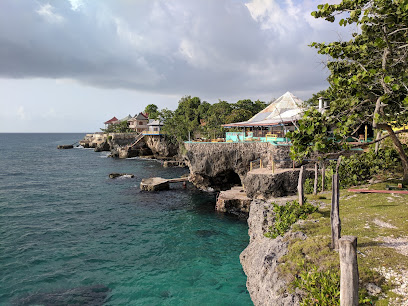
Devon House Ice Cream
Indulge in creamy, Jamaican-inspired ice cream at Devon House in Negril's Tait's Plaza – a sweet escape you won't want to miss!
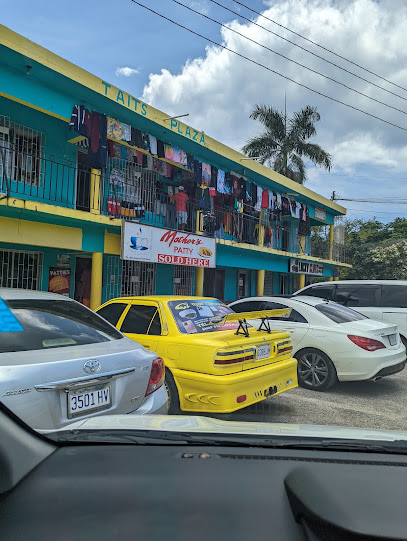
Rocky's Taxi and Tour Service Jamaica - Airport Transfer - Tours - Excursions - Taxi - Service
Explore Jamaica with Rocky's Taxi and Tour Service - your trusted partner for airport transfers, tours, and unforgettable excursions in Negril.
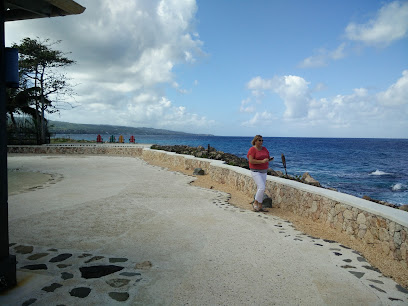
Joseph's Cave
Discover the geological wonders of Joseph's Cave in Negril, Jamaica: stalactites, stalagmites, and a serene escape await!
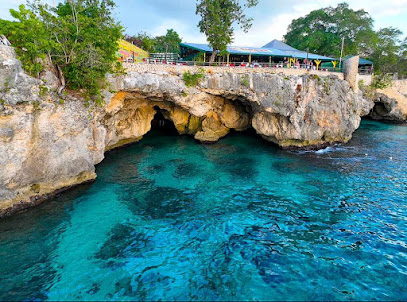
Unmissable attractions to see
Sunset Beach Resort, Spa & Waterpark
Experience the ultimate tropical getaway at Sunset Beach Resort, Spa & Waterpark in Montego Bay, where adventure meets relaxation on stunning Caribbean shores.

Jamwest Motorsports & Adventure Park (Home of Jamwest Speedway)
Experience thrilling adventures at Jamwest Motorsports & Adventure Park, where excitement meets the beauty of Jamaica's landscapes.
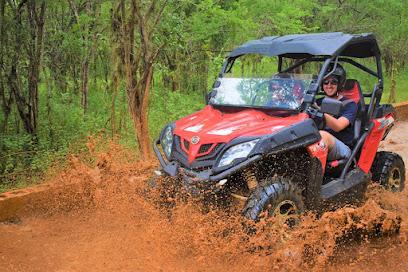
Chukka Ocean Outpost at Sandy Bay
Experience thrilling adventures and breathtaking beauty at Chukka Ocean Outpost in Sandy Bay, Lucea, Jamaica, perfect for families and adventure seekers alike.
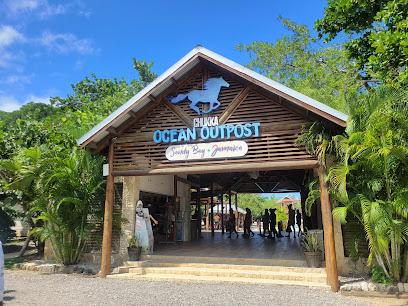
Negril Seven Mile Beach
Experience the breathtaking beauty of Negril Seven Mile Beach, a Caribbean paradise known for its golden sands and vibrant sunsets.
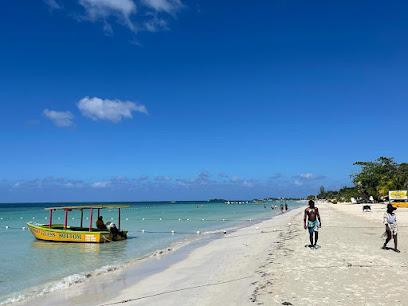
Blue Hole Mineral Spring | Jamaica
Experience the serene beauty and adventure of Blue Hole Mineral Spring in Jamaica, a must-visit destination for nature lovers and thrill-seekers alike.
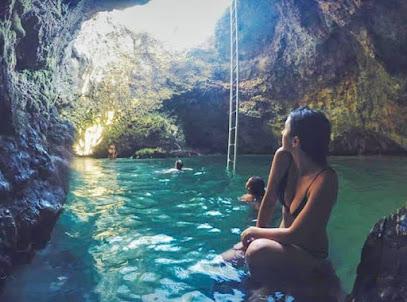
Bluefields Beach
Experience the tranquility and natural beauty of Bluefields Beach in Jamaica, a perfect blend of relaxation and local culture awaits you.
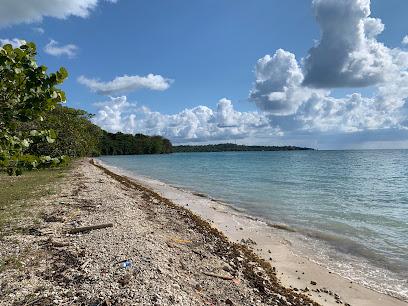
Roaring River and Cave
Experience the natural beauty of Roaring River and Cave, Jamaica's serene escape with crystal-clear waters and stunning geological formations.
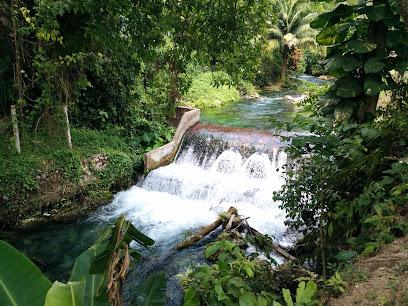
Rocklands Bird Sanctuary (Montego Bay)
Explore the tranquil Rocklands Bird Sanctuary in Wiltshire, Jamaica, where vibrant birds and lush gardens create an unforgettable nature experience.
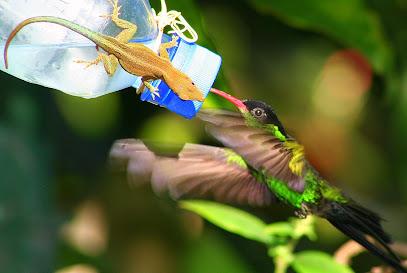
The Jungle
Experience the vibrant nightlife of Negril at The Jungle, where music, dance, and local culture come alive under the stars.
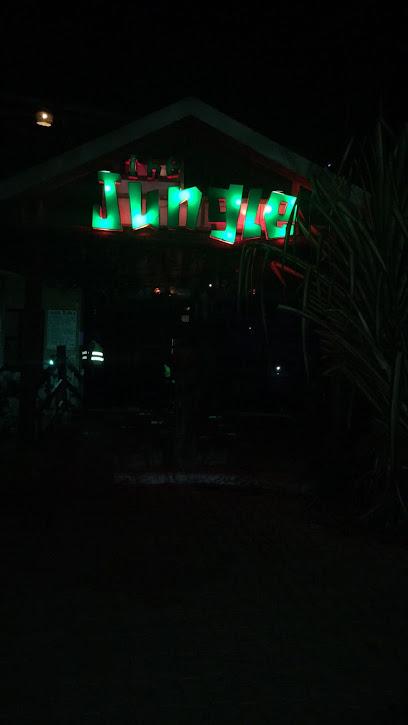
RastaSafari Experience
Experience the vibrant Rastafarian culture and breathtaking nature at RastaSafari, a must-visit destination in Roaring River, Jamaica.
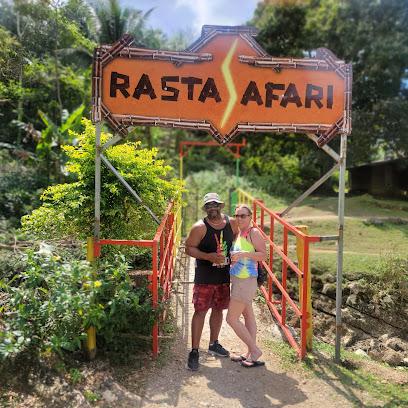
Barney's Botanical Garden Jamaica
Explore the enchanting beauty of Barney's Botanical Garden, a serene escape in Negril filled with vibrant flora and tranquility.
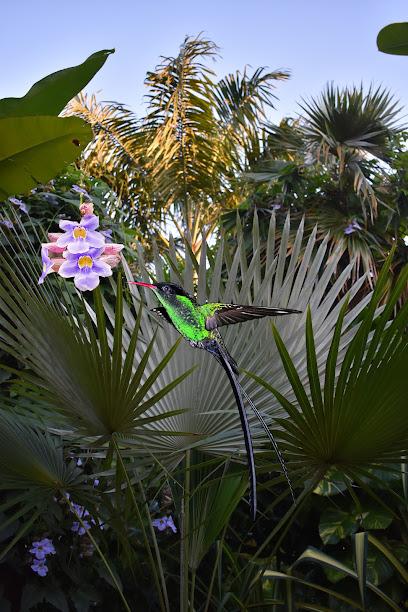
Negril Hills Golf Club
Experience the breathtaking views and challenging play of Negril Hills Golf Club, a top-rated golfing destination in Jamaica's stunning Negril.
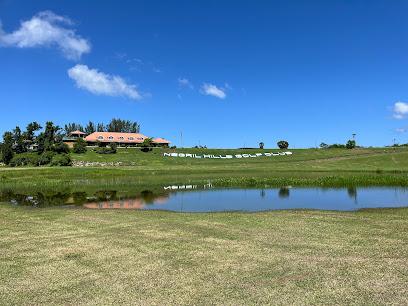
Mayfield Falls & Mineral Springs - Original
Explore the stunning Mayfield Falls & Mineral Springs in Pennycooke, Jamaica—where nature's beauty meets adventure for an unforgettable experience.
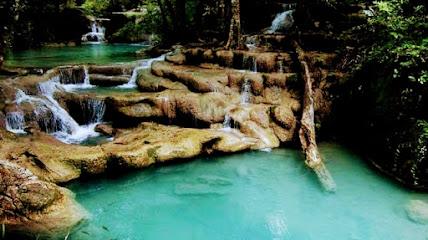
Reggae Horseback Riding & Tours
Discover the beauty of Negril on horseback with Reggae Horseback Riding & Tours, where adventure meets the spirit of Jamaica.
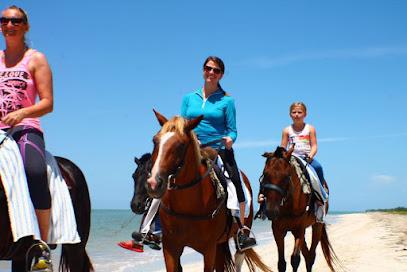
Half Moon Beach
Discover the tranquil beauty of Half Moon Beach in Jamaica, where azure waters meet soft sands for the perfect tropical getaway.

Essential places to dine
Rick's Cafe
Experience breathtaking views and vibrant Caribbean culture at Rick's Cafe in Negril – where dining meets adventure amidst stunning sunsets.
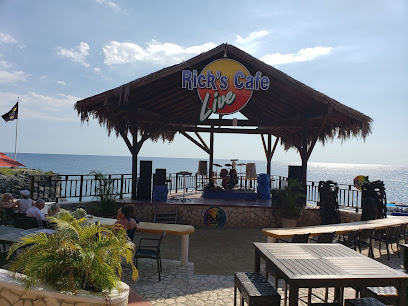
Sweet Spice Restaurant
Experience authentic Jamaican cuisine at Sweet Spice Restaurant in Negril – where every dish tells a story.
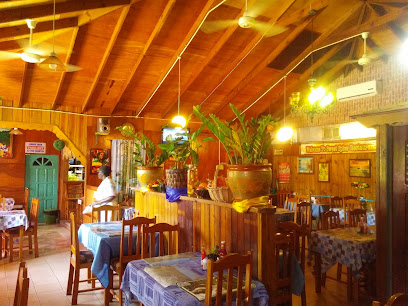
Rockhouse Restaurant
Experience exquisite dining at Rockhouse Restaurant in Negril – where local flavors meet breathtaking ocean views.
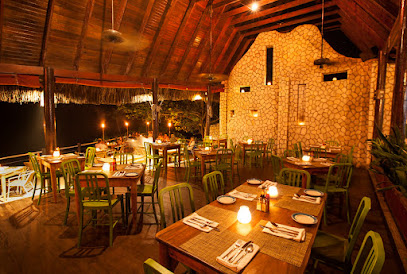
Pushcart Restaurant at Rockhouse
Experience authentic Jamaican cuisine with breathtaking ocean views at Pushcart Restaurant in Negril.
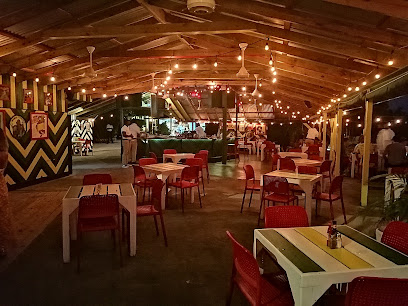
Flag City Seafood & Grill
Experience authentic Jamaican seafood at Flag City Seafood & Grill in Negril—where fresh flavors meet vibrant Caribbean culture.
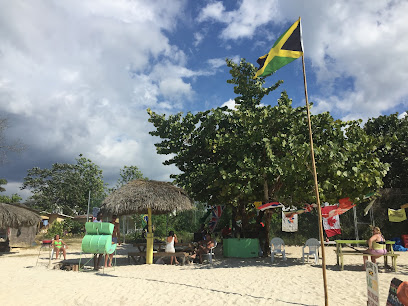
Rasta Ade Refreshments
Experience authentic Jamaican flavors with a vegan twist at Rasta Ade Refreshments in Negril - where fresh ingredients meet cultural vibrancy.
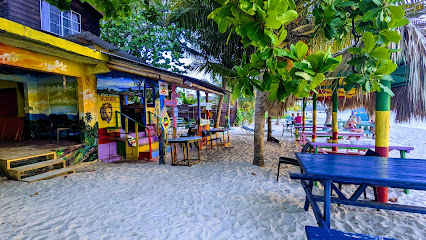
Popeye's Chicken
Experience the authentic taste of Jamaica at Popeye's Chicken in Negril – where delicious flavors meet vibrant culture.
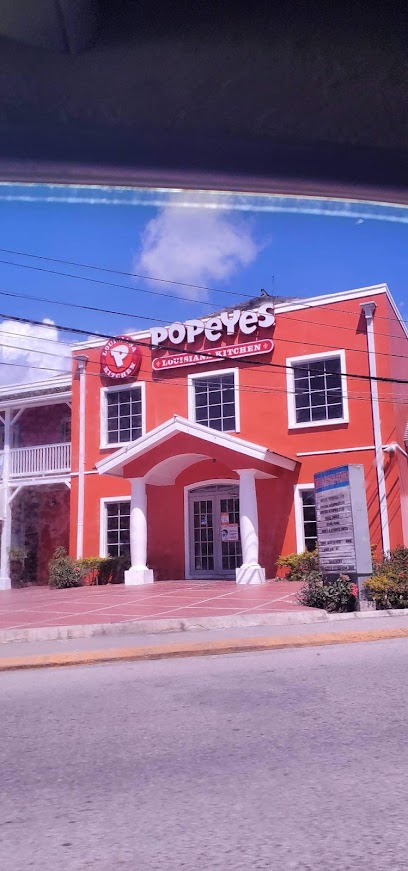
Murphy West End Restaurant
Experience authentic Jamaican flavors at Murphy West End Restaurant in West End - where every meal tells a story.
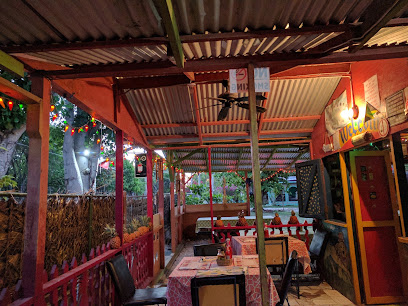
LTU Cliff Bar and Restaurant
Experience breathtaking ocean views and authentic Caribbean cuisine at LTU Cliff Bar and Restaurant in West End, Jamaica.
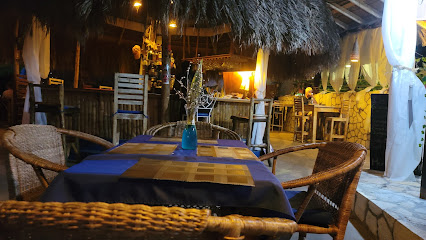
3 Dives Restaurant
Discover authentic Jamaican cuisine at 3 Dives Restaurant in Negril—an unmissable culinary experience by the sea.
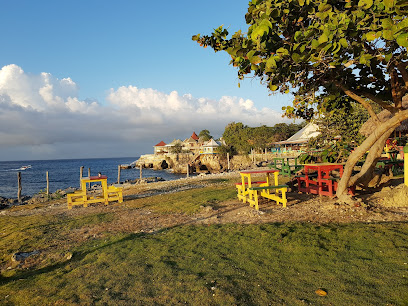
Vinnes Grill N Bar
Experience authentic Jamaican cuisine at Vinnes Grill N Bar in Negril - where every dish tells a story.
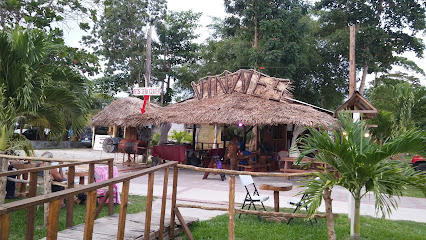
Sips and Bites Restaurant
Experience the best of Jamaican cuisine at Sips and Bites Restaurant in Negril—delicious food in a friendly atmosphere awaits!
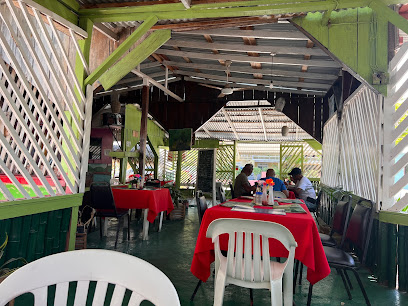
Erica's Hideaway Restaurant and Bar
Experience authentic Jamaican flavors at Erica's Hideaway Restaurant and Bar in Negril – where hospitality meets culinary excellence.
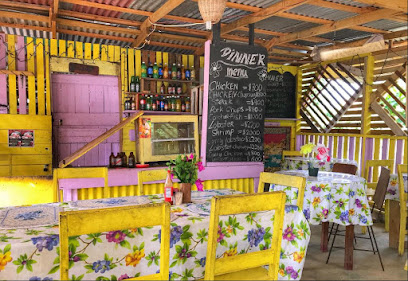
The Blue Mahoe Restaurant & Bar
Experience authentic Jamaican cuisine at The Blue Mahoe Restaurant & Bar with stunning ocean views in Negril.
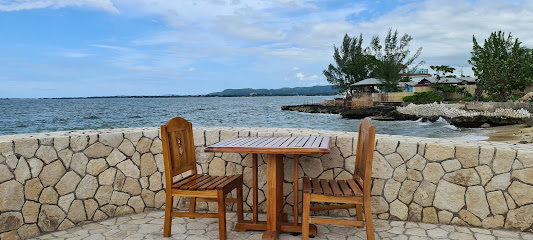
The Lodge Restaurant at Tensing Pen Hotel
Experience authentic Caribbean cuisine at The Lodge Restaurant in Negril's Tensing Pen Hotel, where stunning ocean views meet exceptional flavors.
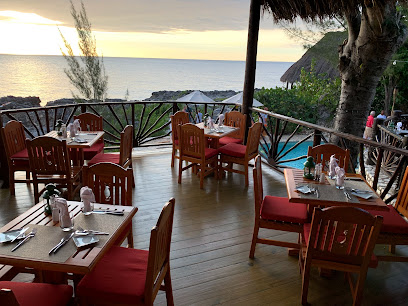
Markets, malls and hidden boutiques
Time Square Shopping Mall
Discover an exciting shopping paradise at Time Square Shopping Mall in Negril, where vibrant stores, delicious food, and fun await every visitor.
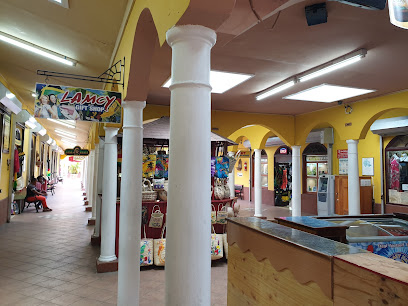
Value Master
Explore the flavors of Jamaica at Value Master in Negril, your go-to grocery store for local products and everyday essentials.
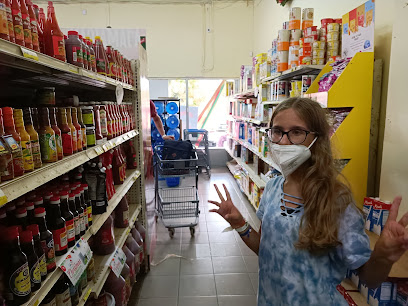
Quality Traders Supermarket | Hotel | Quality Italian Pizza Place
Experience the best of Negril with Quality Traders Supermarket: your go-to for local groceries and delicious Italian pizza.
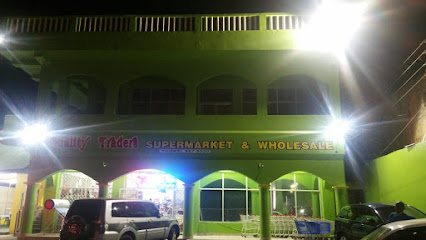
reggae smiles gift shop
Explore Reggae Smiles Gift Shop in Negril for unique Jamaican souvenirs and a vibrant shopping experience steeped in local culture.
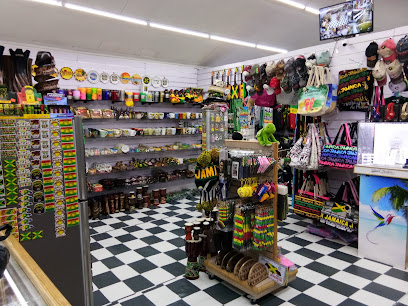
JammRock Collections
Discover unique souvenirs and local crafts at JammRock Collections, a vibrant shopping mall in the heart of Negril, Jamaica.
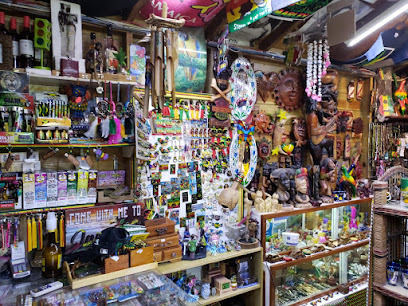
two brother's mini mart
Explore the vibrant local culture at Two Brother's Mini Mart in Negril, offering authentic Jamaican snacks and essentials.

Negril Craft Market
Experience the magic of local artistry at Negril Craft Market, where every piece tells a story and every visit is a celebration of Jamaican culture.
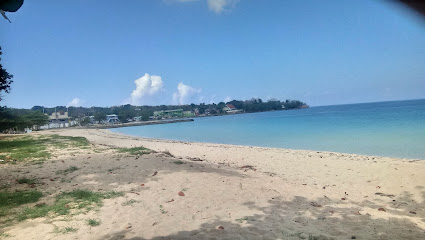
Island Craft Jamaica
Explore unique handcrafted treasures and authentic Jamaican souvenirs at Island Craft Jamaica, a vibrant craft store in Negril that showcases local artistry.
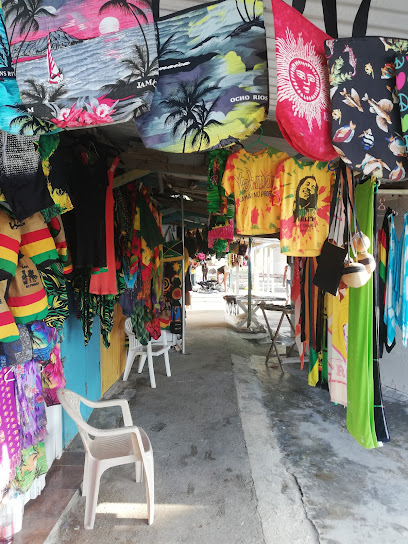
Seaside Gift Shop
Discover unique gifts and local treasures at Seaside Gift Shop in Negril, Jamaica, where every item tells a story of the vibrant Caribbean culture.
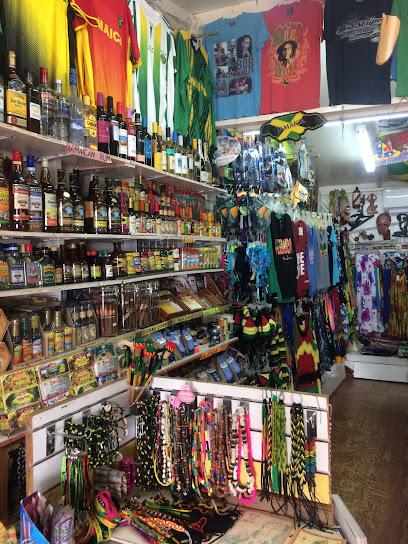
Destiny Gift Shop
Explore the vibrant offerings of Destiny Gift Shop in Negril, where local culture and unique souvenirs come together in a delightful shopping experience.
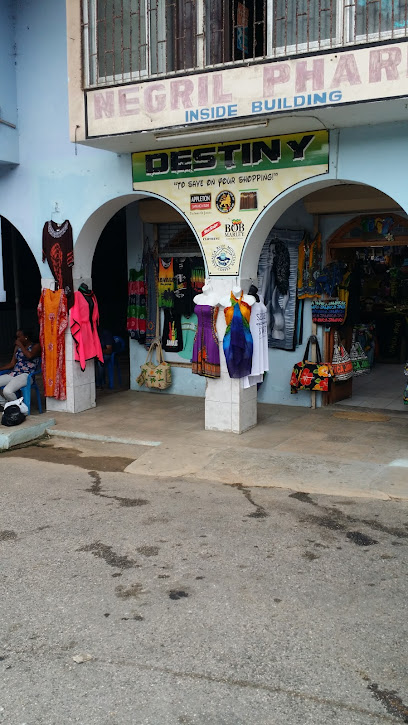
LFA Country Store Negril
Explore local flavors and essentials at LFA Country Store, Negril's premier supermarket offering authentic Jamaican products.
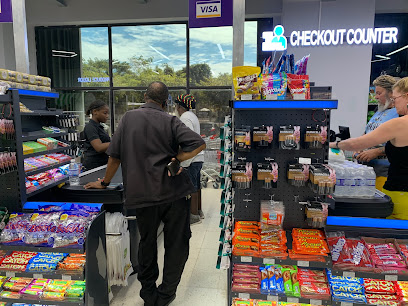
Irie Art
Explore the vibrant artistry of Jamaica at Irie Art, where unique handcrafted souvenirs and local culture come to life on Wavz Beach.
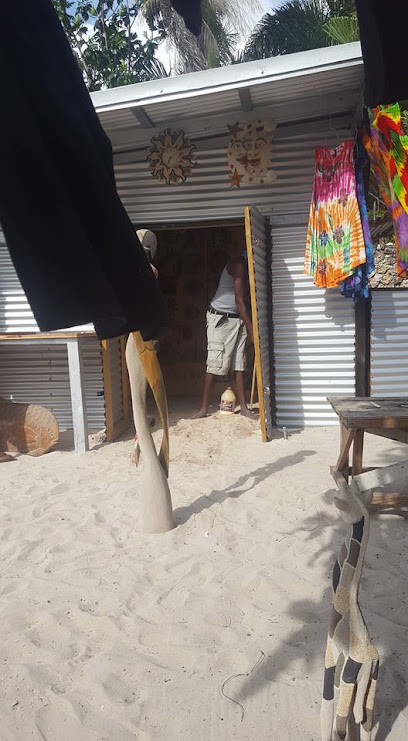
Coral Sea Plaza
Experience vibrant shopping and local culture at Coral Sea Plaza in Negril, Jamaica, where unique boutiques and delicious eateries await.

Negril Vendors Plaza
Discover the vibrant essence of Negril at the Vendors Plaza, where shopping meets authentic Jamaican culture and delicious street food.
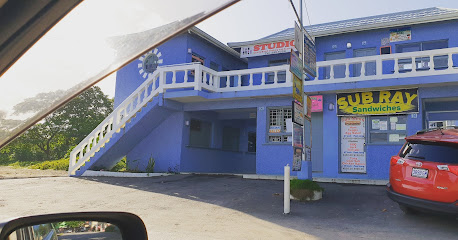
Negril Glamour City
Explore Negril Glamour City for a unique shopping experience filled with vibrant Caribbean fashion and local designer treasures.

Essential bars & hidden hideouts
Canoe Beach Bar
Discover the vibrant atmosphere and breathtaking views at Canoe Beach Bar, a must-visit destination in Negril, Jamaica.
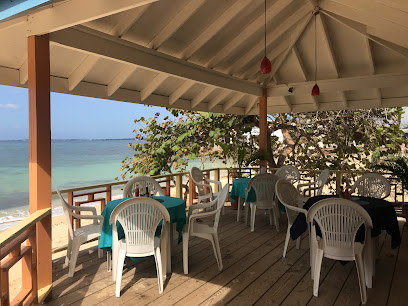
Drifter's Bar
Experience the lively ambiance and refreshing drinks at Drifter's Bar, a family-friendly hotspot in the heart of Negril, Jamaica.
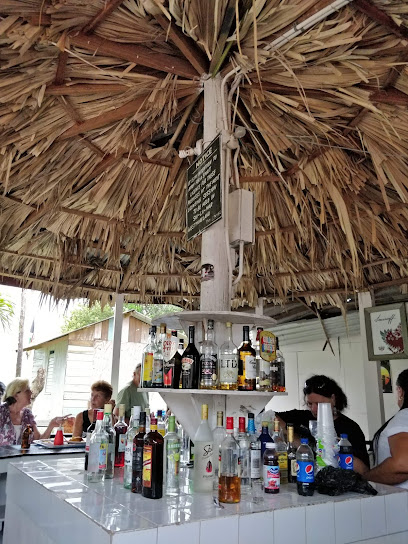
Red Dragon Bar
Discover the lively Red Dragon Bar in Negril, where fun meets affordability for an unforgettable Caribbean nightlife experience.
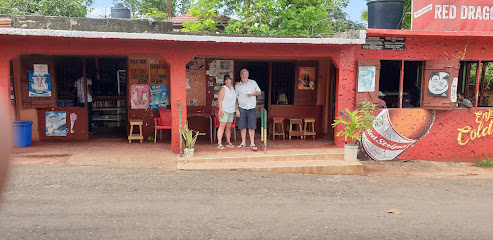
Collette's Bar
Discover the vibrant charm of Collette's Bar in Negril, where refreshing drinks and a cozy atmosphere await every traveler.
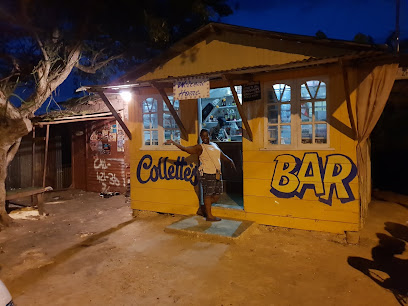
Bar Negril & Jerk Spot
Experience the vibrant flavors of Jamaica at Bar Negril & Jerk Spot, where authentic jerk chicken and a lively atmosphere await.
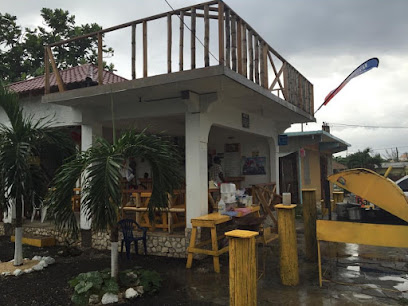
De Rock Bar
Discover the vibrant atmosphere and stunning views at De Rock Bar in Negril, Jamaica, a perfect blend of relaxation and excitement.
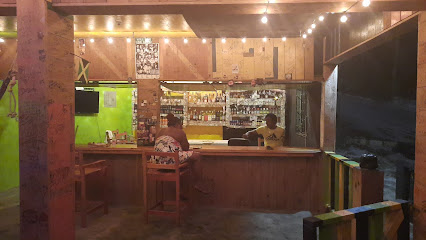
Palm Court Sports Bar
Discover the lively atmosphere of Palm Court Sports Bar in Negril, where delicious food, refreshing drinks, and sports unite for an unforgettable experience.
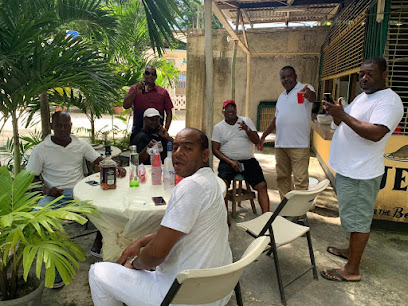
Spot Light
Experience the vibrant nightlife of Negril at Spot Light, where refreshing drinks and local music create unforgettable memories.
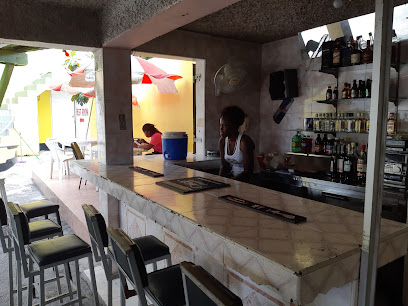
Thatch Hut Bar and Grill
Discover the essence of Jamaican cuisine and refreshing cocktails at Thatch Hut Bar and Grill in Negril, a must-visit destination for every traveler.
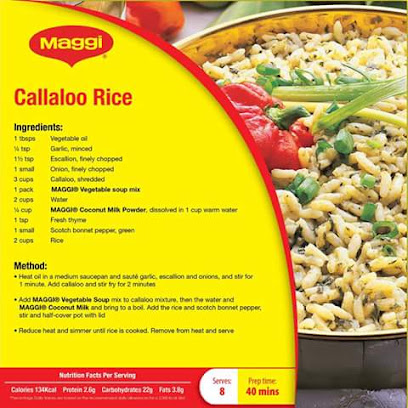
Ambitious Sports Bar
Discover the Ambitious Sports Bar in Negril, your go-to destination for great food, refreshing drinks, and an exciting sports atmosphere.
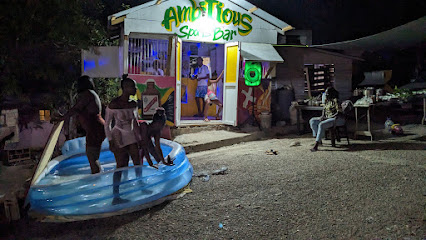
Flag city
Experience the vibrant culture and refreshing cocktails at Flag City Bar in Negril, Jamaica's lively social hub.
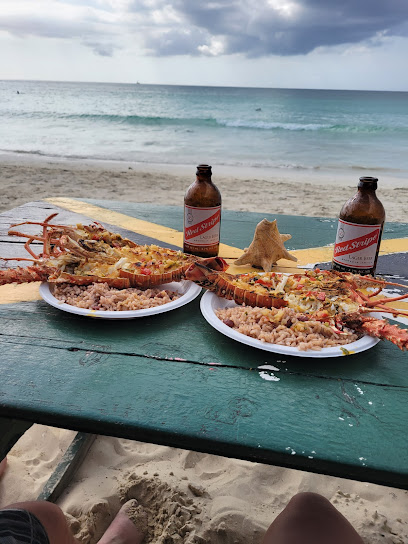
Shelly's place
Discover the vibrant nightlife at Shelly's Place, a must-visit bar in Negril offering delicious cocktails and a welcoming atmosphere.

The Hideaway Bar
Experience the vibrant spirit of Jamaica at The Hideaway Bar, where refreshing cocktails and local culture meet in a tropical paradise.

Goddess pub
Experience the vibrant atmosphere of Goddess Pub in Negril, where local culture meets refreshing drinks and unforgettable nightlife.
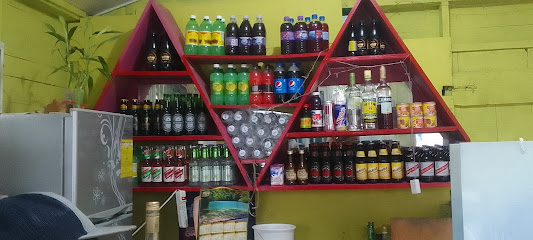
Local Phrases
-
- HelloWa gwaan
[Wa gwaan] - GoodbyeLikkle more
[Likkle more] - YesYa man
[Ya man] - NoNo sah
[No sah] - Please/You're welcomeLikkle more
[Likkle more] - Thank youRespect
[Respect] - Excuse me/SorrySarry
[Sarry] - How are you?How yuh duh?
[How yuh duh?] - Fine. And you?Mi good. An yuh?
[Mi good. An yuh?] - Do you speak English?Yu chat Ingglish?
[Yu chat Ingglish?] - I don't understandMi noh undastan
[Mi noh undastan]
- HelloWa gwaan
-
- I'd like to see the menu, pleaseMi wah see di menu, please
[Mi wah see di menu, please] - I don't eat meatMi noh eat meat
[Mi noh eat meat] - Cheers!One love!
[One love!] - I would like to pay, pleaseMi wah pay, please
[Mi wah pay, please]
- I'd like to see the menu, pleaseMi wah see di menu, please
-
- Help!Help!
[Help!] - Go away!Gwaan weh!
[Gwaan weh!] - Call the Police!Call di police!
[Call di police!] - Call a doctor!Call a docta!
[Call a docta!] - I'm lostMi lost
[Mi lost] - I'm illMi sick
[Mi sick]
- Help!Help!
-
- I'd like to buy...Mi wah buy...
[Mi wah buy...] - I'm just lookingMi jus a look
[Mi jus a look] - How much is it?A how much dat?
[A how much dat?] - That's too expensiveDat too much
[Dat too much] - Can you lower the price?Yu can drop di price?
[Yu can drop di price?]
- I'd like to buy...Mi wah buy...
-
- What time is it?Wa time it deh?
[Wa time it deh?] - It's one o'clockA one o'clock
[A one o'clock] - Half past (10)Haaf past (10)
[Haaf past (10)] - MorningMawnin
[Mawnin] - AfternoonAftanoon
[Aftanoon] - EveningEvenin
[Evenin] - YesterdayYessideh
[Yessideh] - TodayToday
[Today] - TomorrowTomara
[Tomara] - 1One
[One] - 2Tu
[Tu] - 3Trie
[Trie] - 4Fo
[Fo] - 5Fie
[Fie] - 6Siks
[Siks] - 7Seven
[Seven] - 8Eit
[Eit] - 9Nain
[Nain] - 10Ten
[Ten]
- What time is it?Wa time it deh?
-
- Where's a/the...?Weh di...deh?
[Weh di...deh?] - What's the address?Wa di address deh?
[Wa di address deh?] - Can you show me (on the map)?Yu cyaan show mi (pan di map)?
[Yu cyaan show mi (pan di map)?] - When's the next (bus)?When di nex (bus) a come?
[When di nex (bus) a come?] - A ticket (to ....)A tiket (to ....)
[A tiket (to ....)]
- Where's a/the...?Weh di...deh?
History of Negril
-
Before the arrival of Europeans, Negril was inhabited by the Taíno people, who were the indigenous people of Jamaica. The Taíno lived in harmony with nature, relying on fishing, farming, and hunting for their sustenance. They left behind a rich cultural legacy that can still be felt in the region today.
-
In the late 15th century, Christopher Columbus arrived in Jamaica on his second voyage to the New World. Spanish settlers followed, but it wasn't until the British captured the island in 1655 that significant European influence began to shape Negril. The area remained relatively untouched by colonial development due to its remote location and difficult terrain.
-
During the 17th and 18th centuries, Jamaica became a haven for pirates, and Negril was no exception. The rugged coastline and hidden coves provided perfect hideouts for infamous pirates like Calico Jack and Blackbeard. The town's natural landscape made it difficult for authorities to track down and capture these seafaring outlaws.
-
Negril remained a quiet fishing village for centuries until the 1960s when it started to attract hippies and backpackers looking for an off-the-beaten-path destination. The natural beauty of Seven Mile Beach and the laid-back atmosphere began to draw more visitors, leading to the gradual development of tourism infrastructure.
-
In recent decades, there has been a growing awareness of the need to protect Negril's natural environment. Efforts have been made to preserve the coral reefs, mangroves, and other ecosystems that are crucial to the area's biodiversity. Numerous eco-friendly initiatives and sustainable tourism practices have been implemented to ensure that Negril remains a pristine destination for future generations.
-
Today, Negril is known for its stunning beaches, vibrant nightlife, and rich cultural heritage. The town has managed to maintain its unique charm while accommodating the influx of tourists. Local traditions, music, and cuisine continue to thrive, offering visitors an authentic Jamaican experience. Negril's history and culture are celebrated through various festivals and events held throughout the year.
Negril Essentials
-
Negril is located on the western tip of Jamaica. The closest international airport is Sangster International Airport in Montego Bay, approximately 80 kilometers away. From Montego Bay, you can take a taxi, shuttle bus, or rent a car to reach Negril. The drive typically takes about 1.5 to 2 hours along the scenic coastal road. Alternatively, you can reach Negril via Norman Manley International Airport in Kingston, although this route is longer and takes around 4 hours by car.
-
In Negril, transportation options include taxis, route taxis (shared taxis), and minibuses. Taxis are readily available and can be hired for short trips or full-day excursions. Route taxis are a more economical option and follow set routes, picking up multiple passengers along the way. Minibuses operate between Negril and nearby towns. Renting a car is also an option for those who prefer to explore at their own pace. Bicycles and scooters can be rented for shorter, more local trips.
-
The official currency in Jamaica is the Jamaican Dollar (JMD). US Dollars are widely accepted in tourist areas, but it's advisable to carry Jamaican Dollars for smaller establishments and local markets. Credit cards are accepted in most hotels, restaurants, and larger shops. ATMs are available throughout Negril, but it's prudent to have some cash on hand for emergencies or places that do not accept cards.
-
Negril is generally safe for tourists, but it's important to remain vigilant. Avoid walking alone at night, especially on isolated beaches and poorly lit areas. Stick to well-frequented and well-lit places. Be cautious of petty theft and keep an eye on your belongings in crowded areas. While most of Negril is safe, certain areas, such as the outskirts and some parts of West End, have higher crime rates. It's best to stay informed and ask locals or your accommodation for advice on safe areas.
-
In case of emergency, dial 119 for police assistance or 110 for an ambulance. Negril has a police station and several medical facilities, including a public health clinic and private doctors. It's highly recommended to have travel insurance that covers medical emergencies. For minor health issues, pharmacies are available where you can purchase over-the-counter medications.
-
Fashion: Do dress comfortably and casually. Swimwear is appropriate at the beach but not in town or restaurants. Avoid overly revealing clothing. Religion: Do respect local customs and traditions. If visiting a church, dress modestly and remove hats. Public Transport: Do use route taxis for an economical way to get around. Confirm the fare before starting your trip. Don't argue over fares; if in doubt, ask a local. Greetings: Do greet people with a friendly 'hello' or 'good morning/afternoon.' A smile goes a long way. Eating & Drinking: Do try local Jamaican cuisine and street food. Always wash fruits and vegetables before eating. Don't drink tap water; stick to bottled or filtered water.
-
To experience Negril like a local, visit the local markets where you can buy fresh produce, spices, and crafts. Engage with locals, who are generally friendly and willing to share stories about their culture and history. Don't miss the breathtaking sunset at Rick's Cafe, a popular spot for both tourists and locals. For a unique experience, take a boat trip to Booby Cay Island for snorkeling and a beach picnic. Enjoy the local music scene, especially live reggae performances.
Trending Landmark in Negril
-
Margaritaville Negril
-
Kool Runnings Waterpark
-
Negril Seven Mile Beach
-
Blue Hole Mineral Spring | Jamaica
-
Alfred's Negril (Alfred's Ocean Palace)
-
Time Square Shopping Mall
-
Patsy's Coffeeshop
-
Negril Hills Golf Club
-
Barney's Flower & Hummingbird Garden Jamaica
-
Canoe Beach Bar
-
Hammond's Bakery
-
3 Dives Restaurant
-
Devon House Ice Cream
-
Rocky's Taxi and Tour Service Jamaica - Airport Transfer - Tours - Excursions - Taxi - Service
-
Joseph's Cave
Nearby Cities to Negril
-
Things To Do in Savanna-la-Mar
-
Things To Do in Montego Bay
-
Things To Do in Black River
-
Things To Do in Treasure Beach
-
Things To Do in Runaway Bay
-
Things To Do in Ocho Rios
-
Things To Do in Portmore
-
Things To Do in Port Antonio
-
Things To Do in Jérémie
-
Things To Do in Les Cayes
-
Things To Do in Saint-Marc
-
Things To Do in Gonaïves
-
Things To Do in Jacmel
-
Things To Do in Port-au-Prince
-
Things To Do in Petionville










